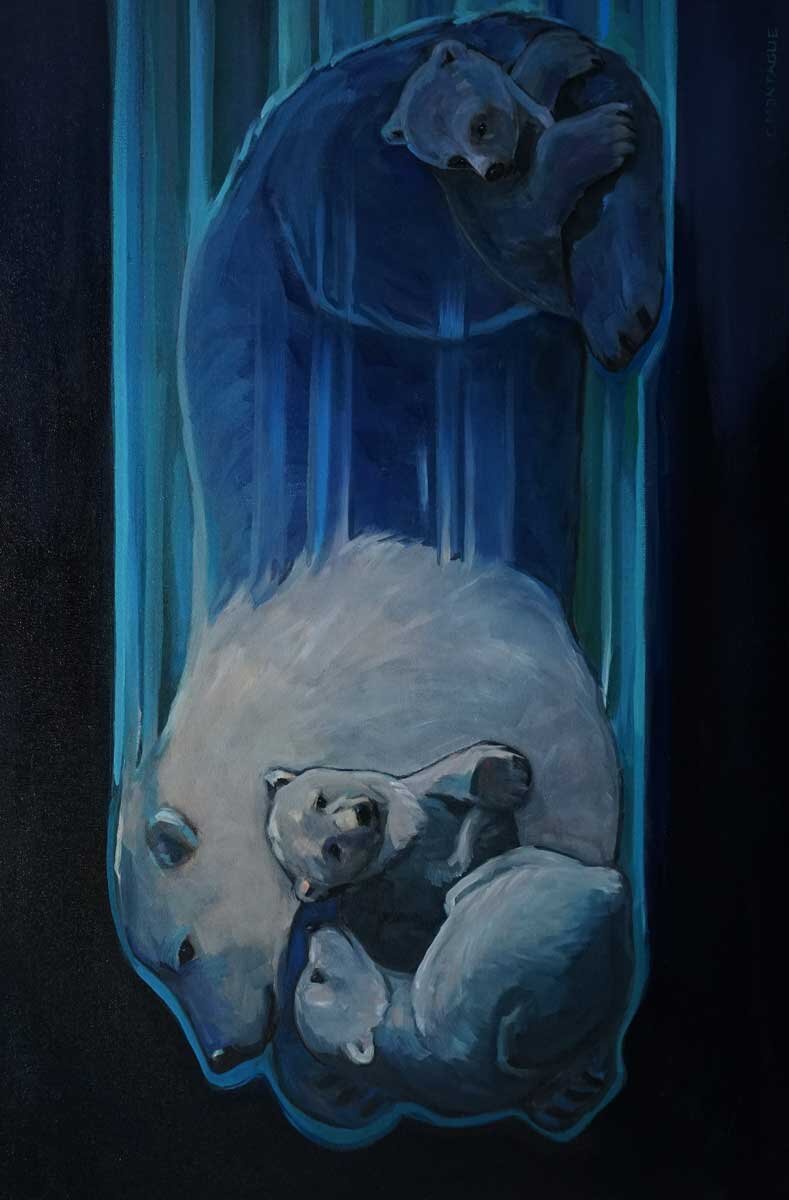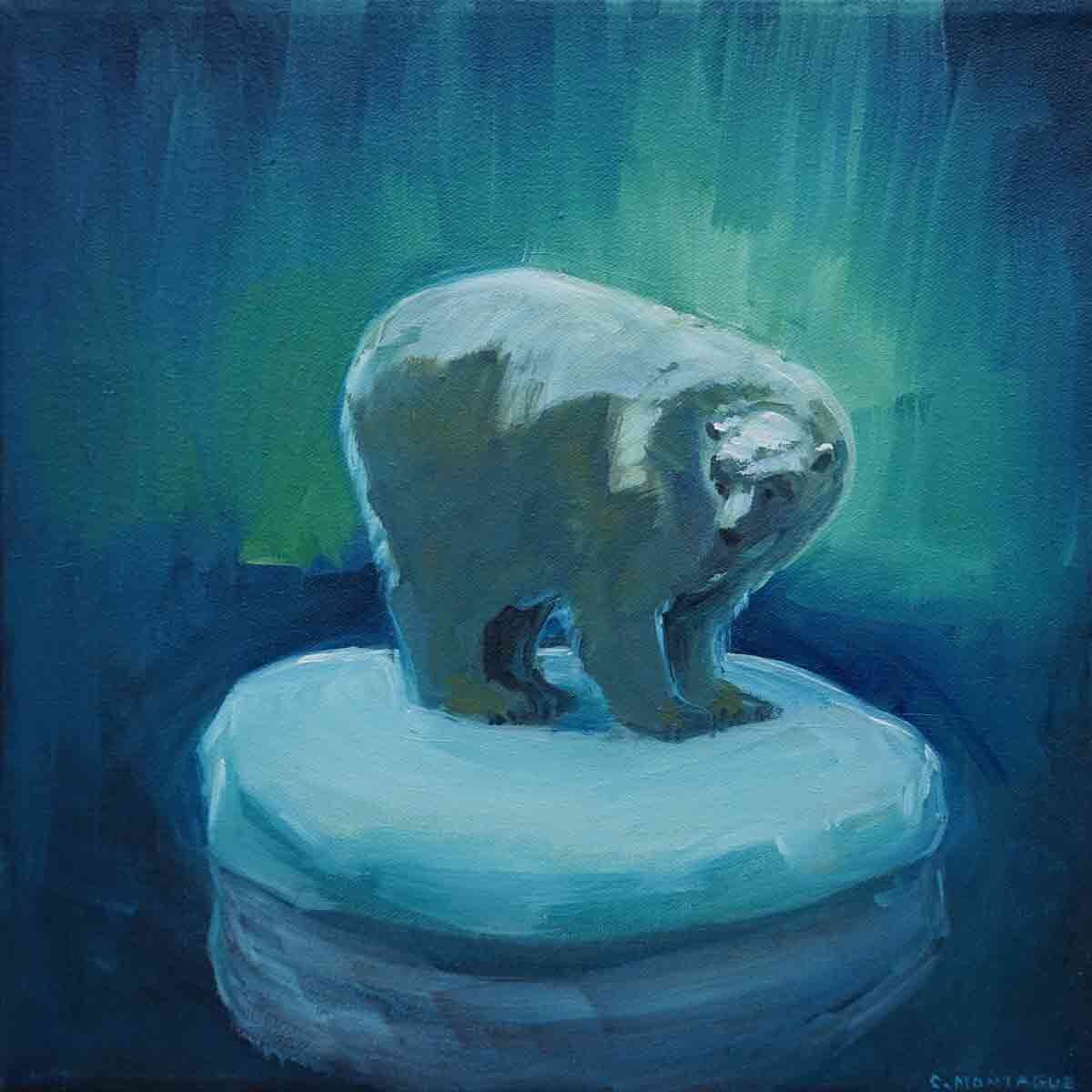Triplets
This stylized oil painting has a climate change story to tell, and can be hung vertically or horizontally to do so.
Hung horizontally: In my latest oil painting, Triplets, three polar bear cubs affectionately play with their mother, secure and warm in their den. It is rare that 3 cubs are born and so this is one lucky polar bear mother.
One of the cubs is in the shadows. It could be a sign of foreboding, but is more a comment of how the healthier a bear is the more likely multiple births succeed. (Recently, a Polar Bears International post mentioned a bear with three cubs was observed for the first time in five years.)
Triplets. Hung horizontally. ©Christine Montague Oil painting. 20” x 30”
Hung vertically: The bear family’s survival is dependant on sea ice. Too early a breakup of the ice in the spring, and a delay in its formation in the fall, leaves the polar bear and cubs vulnerable to starvation, drowning and threat from male bears.
30” x 20” x 1.5” oil painting on canvas. Edges are painted black. Wired, ready to hang. Certificate of Authenticity supplied.
Triplets hung vertically. 30”h x 20”w ©Christine Montague









